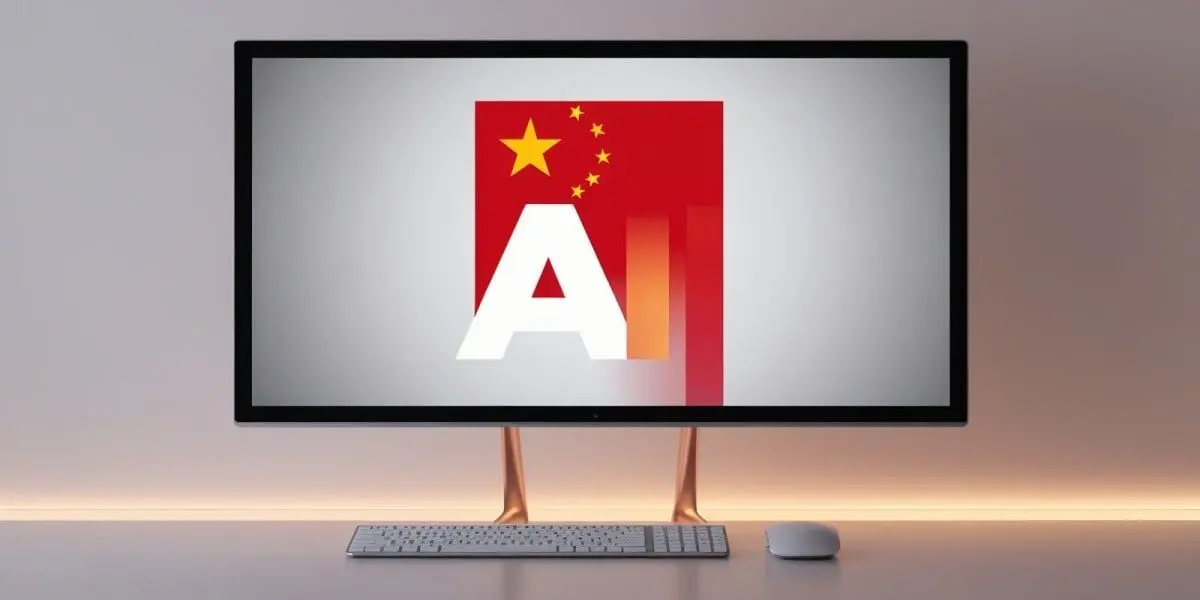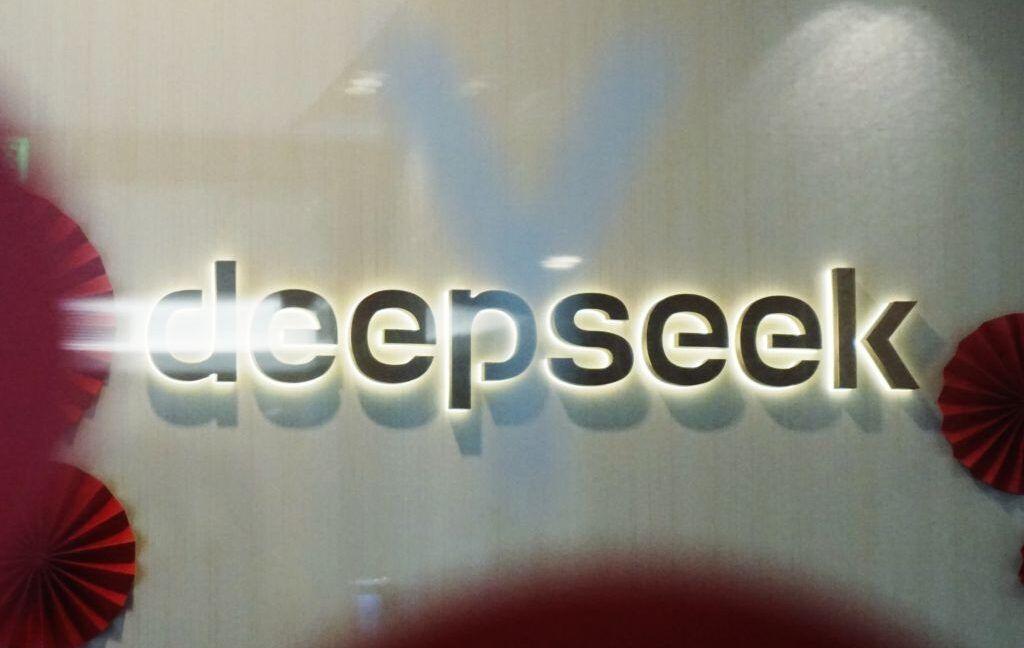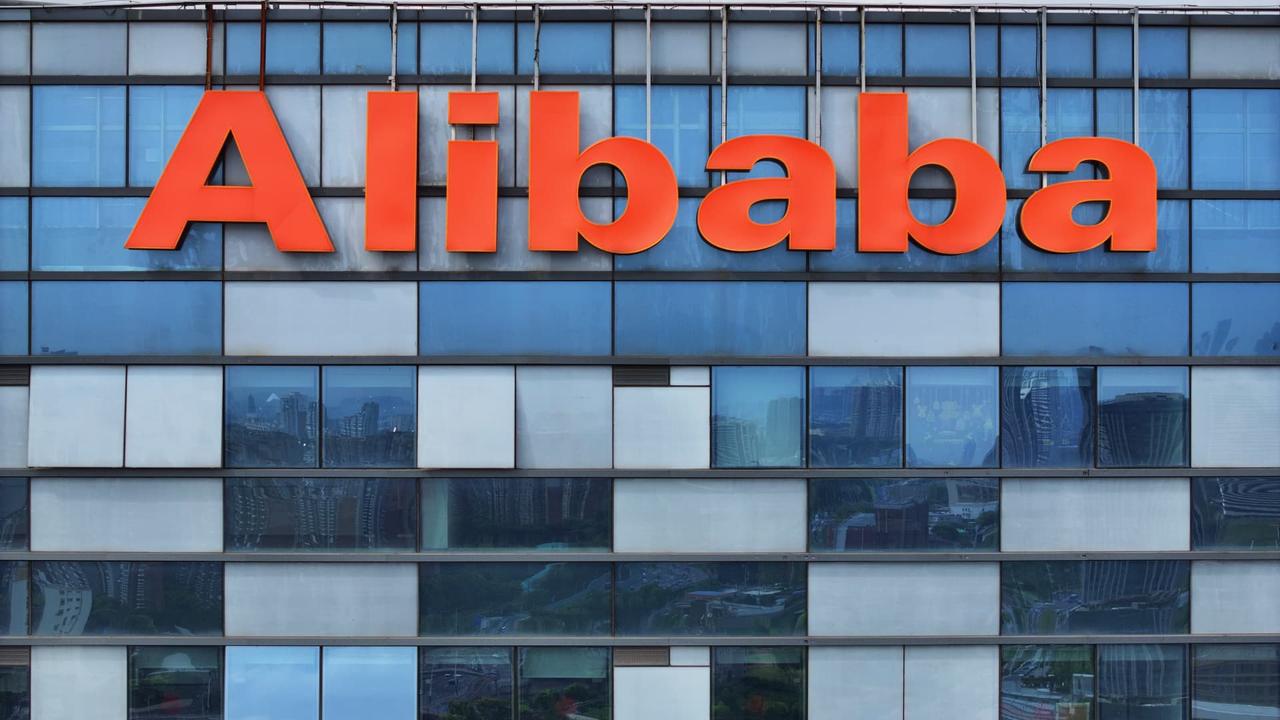Huawei Denies Accusations of Copying Alibaba's AI Model, Sparking Debate in China's Tech Sector
6 Sources
6 Sources
[1]
Huawei's AI Lab Fends Off Accusations It Copied Rival Models
Huawei Technologies Co.'s secretive AI research lab has pushed back against accusations it relied on rivals' models to develop its own Pangu platform, taking the unusual step of rebutting claims about its artificial intelligence efforts. The Pangu Pro MoE is the world's first model of its kind to be trained on Ascend chips -- Huawei's answer to Nvidia Corp.'s AI accelerators -- the lab said in a WeChat post over the weekend. While the company employed open-source code -- as is "common practice" -- Huawei said it respected intellectual property and stuck closely to licensing terms. This followed accusations posted on the coding platform Github that Pangu's source code contained uncredited material from key rivals.
[2]
Huawei's AI lab denies that one of its Pangu models copied Alibaba's Qwen
BEIJING/SHANGHAI, July 7 (Reuters) - Huawei's artificial intelligence research division has rejected claims that a version of its Pangu Pro large language model has copied elements from an Alibaba (9988.HK), opens new tab model, saying that it was independently developed and trained. The division, called Noah Ark Lab, issued the statement on Saturday, a day after an entity called HonestAGI posted an English-language paper on code-sharing platform Github, saying Huawei's Pangu Pro Moe (Mixture of Experts) model showed "extraordinary correlation" with Alibaba's Qwen 2.5 14B. This suggests that Huawei's model was derived through "upcycling" and was not trained from scratch, the paper said, prompting widespread discussion in AI circles online and in Chinese tech-focused media. The paper added that its findings indicated potential copyright violation, the fabrication of information in technical reports and false claims about Huawei's investment in training the model. Noah Ark Lab said in its statement that the model was "not based on incremental training of other manufacturers' models" and that it had "made key innovations in architecture design and technical features." It is the first large-scale model built entirely on Huawei's Ascend chips, it added. It also said that its development team had strictly adhered to open-source license requirements for any third-party code used, without elaborating which open-source models it took reference from. Alibaba did not immediately respond to a Reuters request for comment. Reuters was unable to contact HonestAGI or learn who is behind the entity. The release of Chinese startup DeepSeek's open-source model R1 in January this year shocked Silicon Valley with its low cost and sparked intense competition between China's tech giants to offer competitive products. Qwen 2.5-14B was released in May 2024 and is one of Alibaba's small-sized Qwen 2.5 model family which can be deployed on PC and smartphones. While Huawei entered the large language model arena early with its original Pangu release in 2021, it has since been perceived as lagging behind rivals. It open-sourced its Pangu Pro Moe models on Chinese developer platform GitCode in late June, seeking to boost the adoption of its AI tech by providing free access to developers. While Qwen is more consumer-facing and has chatbot services like ChatGPT, Huawei's Pangu models tend to be more used in government as well as the finance and manufacturing sectors. Reporting by Che Pan,Liam Mo and Brenda Goh; Editing by Edwina Gibbs Our Standards: The Thomson Reuters Trust Principles., opens new tab Suggested Topics:Artificial Intelligence
[3]
Huawei accused of stealing Alibaba's AI model, rejects all charges
The report sparked widespread debate across Chinese tech circles and global AI communities, casting a shadow over China's once-collaborative AI front. The GitHub paper accused Huawei of "upcycling" the Qwen model instead of building its own from scratch, raising concerns of potential copyright violations and misinformation in technical disclosures. Reuters reported that HonestAGI's findings questioned Huawei's claims about its training investments and suggested that the model's origin was misrepresented. Huawei's Noah Ark Lab responded swiftly. It stated that the model was "not based on incremental training of other manufacturers' models" and that its team had "made key innovations in architecture design and technical features." It further noted that the Pangu Pro was the first large-scale model built entirely on Huawei's Ascend chips and claimed adherence to open-source license requirements. The confrontation signals a turning point in China's AI race. Once characterized by state-aligned innovation, the sector now faces open rivalry among top players. Industry analysts say this dispute undermines the country's ability to compete with US giants like OpenAI and Google DeepMind.
[4]
Huawei's AI lab denies that one of its Pangu models copied Alibaba's Qwen - The Economic Times
Huawei's artificial intelligence research division has rejected claims that a version of its Pangu Pro large language model has copied elements from an Alibaba model, saying that it was independently developed and trained. The division, called Noah Ark Lab, issued the statement on Saturday, a day after an entity called HonestAGI posted an English-language paper on code-sharing platform Github, saying Huawei's Pangu Pro Moe (Mixture of Experts) model showed "extraordinary correlation" with Alibaba's Qwen 2.5 14B. This suggests that Huawei's model was derived through "upcycling" and was not trained from scratch, the paper said, prompting widespread discussion in AI circles online and in Chinese tech-focused media. The paper added that its findings indicated potential copyright violation, the fabrication of information in technical reports and false claims about Huawei's investment in training the model. Noah Ark Lab said in its statement that the model was "not based on incremental training of other manufacturers' models" and that it had "made key innovations in architecture design and technical features." It is the first large-scale model built entirely on Huawei's Ascend chips, it added. It also said that its development team had strictly adhered to open-source license requirements for any third-party code used, without elaborating which open-source models it took reference from. Alibaba did not immediately respond to a Reuters request for comment. Reuters was unable to contact HonestAGI or learn who is behind the entity. The release of Chinese startup DeepSeek's open-source model R1 in January this year shocked Silicon Valley with its low cost and sparked intense competition between China's tech giants to offer competitive products. Qwen 2.5-14B was released in May 2024 and is one of Alibaba's small-sized Qwen 2.5 model family which can be deployed on PC and smartphones. While Huawei entered the large language model arena early with its original Pangu release in 2021, it has since been perceived as lagging behind rivals. It open-sourced its Pangu Pro Moe models on Chinese developer platform GitCode in late June, seeking to boost the adoption of its AI tech by providing free access to developers. While Qwen is more consumer-facing and has chatbot services like ChatGPT, Huawei's Pangu models tend to be more used in government as well as the finance and manufacturing sectors.
[5]
Huawei-Alibaba Clash Heats Up On AI Model Plagiarism Allegations - Alibaba Gr Hldgs (NYSE:BABA)
A fresh controversy is brewing in China's intensely competitive artificial intelligence market as Huawei Technologies' AI research arm has firmly rejected allegations of plagiarizing elements from an Alibaba Group Holding BABA model. This denial comes as Alibaba's stock traded lower on Monday. The accusations, stemming from a paper released on GitHub on July 4 by HonestAGI, claim "extraordinary correlation" between Huawei's recently open-sourced Pangu Pro Moe model and Alibaba's established Qwen 2.5 14B. This development further heats up the Chinese AI landscape, which has seen a price war initiated by startups like DeepSeek earlier in 2024. Huawei's Noah's Ark Lab Issues Strong Denial Huawei's Noah's Ark Lab issued a statement Saturday to Reuters, asserting that its Pangu Pro Moe (Mixture of Experts) model was developed and trained independently. Also Read: Alibaba's AI And Cloud Moves Have Sparked 28% Stock Rebound The denial came after HonestAGI published a paper on GitHub on Friday, claiming that Huawei's model showed "extraordinary correlation" with Alibaba's Qwen 2.5 14B model. The paper argued the model appeared "upcycled" rather than trained from scratch, raising concerns about possible copyright violations, fabricated technical claims, and misrepresented training investments. Noah's Ark Lab rejected the claims, stating the model was not incrementally trained on others' work and featured original architectural and technical innovations. The lab added that Pangu Pro Moe is the first large model fully built on Huawei's Ascend chips. Huawei's Ascend chips are a series of AI processors designed by Huawei for AI training and inference, aiming to compete with leading chipmakers like Nvidia Corp NVDA. China's Fierce AI Market And Price Wars The allegations underscore the intense competition within China's booming AI market. Chinese AI startup DeepSeek ignited a domestic price war in 2024 by introducing affordable AI models, prompting tech giants like Alibaba to follow suit and further intensifying the competitive landscape. Alibaba's AI And Cloud Expansion Alibaba stock surged 28% year-to-date, driven by increased investor confidence in China's tech sector, strong earnings reports, and a push into artificial intelligence. Alibaba Cloud is rapidly expanding overseas, adding new data centers in Malaysia, South Korea, and the Philippines as part of a global push. These expansions were announced in the first half of 2025, with a third data center in Malaysia launched on July 1, 2025, and a second in the Philippines planned for October 2025. CEO Eddie Wu has made globalization a core strategy, with plans to grow Alibaba's cloud presence across Asia, Europe, the Middle East, and the Americas. The company will launch a global AI competency center in Singapore and expand its Qwen AI models to international data hubs by 2025. Backing its ambitions, Alibaba has committed $52 billion over three years to cloud and AI infrastructure, partnering with Microsoft Corp. MSFT and Nvidia. Price Action: BABA shares are trading lower by 1.37% to $107.40 premarket at last check on Monday. Read Next: iPhone Sales Bounce Back In China, But Huawei And Xiaomi Intensify Pressure Photo by Mamun_Sheikh via Shutterstock BABAAlibaba Group Holding Ltd$107.18-1.40%Stock Score Locked: Edge Members Only Benzinga Rankings give you vital metrics on any stock - anytime. Unlock RankingsEdge RankingsMomentum87.55Growth94.24Quality36.02Value86.82Price TrendShortMediumLongOverviewMSFTMicrosoft Corp$498.81-0.01%NVDANVIDIA Corp$157.82-0.95%Market News and Data brought to you by Benzinga APIs
[6]
Huawei's AI lab denies that one of its Pangu models copied Alibaba's Qwen
BEIJING/SHANGHAI (Reuters) -Huawei's artificial intelligence research division has rejected claims that a version of its Pangu Pro large language model has copied elements from an Alibaba model, saying that it was independently developed and trained. The division, called Noah Ark Lab, issued the statement on Saturday, a day after an entity called HonestAGI posted an English-language paper on code-sharing platform Github, saying Huawei's Pangu Pro Moe (Mixture of Experts) model showed "extraordinary correlation" with Alibaba's Qwen 2.5 14B. This suggests that Huawei's model was derived through "upcycling" and was not trained from scratch, the paper said, prompting widespread discussion in AI circles online and in Chinese tech-focused media. The paper added that its findings indicated potential copyright violation, the fabrication of information in technical reports and false claims about Huawei's investment in training the model. Noah Ark Lab said in its statement that the model was "not based on incremental training of other manufacturers' models" and that it had "made key innovations in architecture design and technical features." It is the first large-scale model built entirely on Huawei's Ascend chips, it added. It also said that its development team had strictly adhered to open-source license requirements for any third-party code used, without elaborating which open-source models it took reference from. Alibaba did not immediately respond to a Reuters request for comment. Reuters was unable to contact HonestAGI or learn who is behind the entity. The release of Chinese startup DeepSeek's open-source model R1 in January this year shocked Silicon Valley with its low cost and sparked intense competition between China's tech giants to offer competitive products. Qwen 2.5-14B was released in May 2024 and is one of Alibaba's small-sized Qwen 2.5 model family which can be deployed on PC and smartphones. While Huawei entered the large language model arena early with its original Pangu release in 2021, it has since been perceived as lagging behind rivals. It open-sourced its Pangu Pro Moe models on Chinese developer platform GitCode in late June, seeking to boost the adoption of its AI tech by providing free access to developers. While Qwen is more consumer-facing and has chatbot services like ChatGPT, Huawei's Pangu models tend to be more used in government as well as the finance and manufacturing sectors. (Reporting by Che Pan,Liam Mo and Brenda Goh; Editing by Edwina Gibbs)
Share
Share
Copy Link
Huawei's AI research division, Noah Ark Lab, strongly refutes claims that its Pangu Pro model copied elements from Alibaba's Qwen model, asserting independent development and adherence to open-source practices.
Accusations of AI Model Plagiarism
Huawei Technologies Co.'s artificial intelligence research division, Noah Ark Lab, has found itself at the center of a controversy in China's competitive AI market. The lab is facing accusations that its Pangu Pro large language model has copied elements from rival Alibaba Group's Qwen model
1
.
Source: Market Screener
The allegations stem from a paper published on GitHub by an entity called HonestAGI, which claimed to have found an "extraordinary correlation" between Huawei's Pangu Pro Moe (Mixture of Experts) model and Alibaba's Qwen 2.5 14B
2
. The paper suggested that Huawei's model was derived through "upcycling" rather than being trained from scratch, raising concerns about potential copyright violations and misrepresentation of training investments3
.Huawei's Response and Claims
In response to these accusations, Noah Ark Lab issued a statement vehemently denying the claims. The lab asserted that the Pangu Pro model was "not based on incremental training of other manufacturers' models" and that it had "made key innovations in architecture design and technical features"
4
.Huawei emphasized that Pangu Pro MoE is the world's first model of its kind to be trained entirely on Ascend chips – Huawei's answer to Nvidia Corp.'s AI accelerators. While acknowledging the use of open-source code, which they described as "common practice," Huawei maintained that they respected intellectual property rights and adhered strictly to licensing terms
1
.Implications for China's AI Sector
This controversy has sparked widespread discussion in AI circles online and in Chinese tech-focused media. It signals a potential turning point in China's AI race, which was once characterized by state-aligned innovation but now faces open rivalry among top players
3
.
Source: Benzinga
The dispute comes at a time of intense competition in China's AI market. Earlier in 2024, Chinese startup DeepSeek's release of its open-source model R1 shocked Silicon Valley with its low cost, igniting a fierce competition among China's tech giants to offer competitive products
2
.Related Stories
Market Positions and Future Implications
While Huawei entered the large language model arena early with its original Pangu release in 2021, it has since been perceived as lagging behind rivals. The company recently open-sourced its Pangu Pro Moe models on the Chinese developer platform GitCode, aiming to boost the adoption of its AI technology
5
.Alibaba, on the other hand, has been expanding its AI and cloud presence globally. The company has committed $52 billion over three years to cloud and AI infrastructure and is partnering with tech giants like Microsoft and Nvidia
5
.
Source: Bloomberg
As the controversy unfolds, industry analysts suggest that this dispute could undermine China's ability to compete with US giants like OpenAI and Google DeepMind in the global AI race
3
. The outcome of this situation may have significant implications for the future of AI development and competition in China and beyond.References
Summarized by
Navi
[3]
[4]
Related Stories
Alibaba Unveils Qwen 2.5-Max AI Model, Claiming Superiority Over DeepSeek and Other Rivals
28 Jan 2025•Technology

Z.ai trains GLM-Image entirely on Huawei hardware, challenging Nvidia's AI chip dominance
15 Jan 2026•Technology

DeepSeek's R2 AI Model Delayed: Huawei Chip Challenges Highlight China's Tech Dilemma
15 Aug 2025•Technology

Recent Highlights
1
ByteDance's Seedance 2.0 AI video generator triggers copyright infringement battle with Hollywood
Policy and Regulation

2
Demis Hassabis predicts AGI in 5-8 years, sees new golden era transforming medicine and science
Technology

3
Nvidia and Meta forge massive chip deal as computing power demands reshape AI infrastructure
Technology





